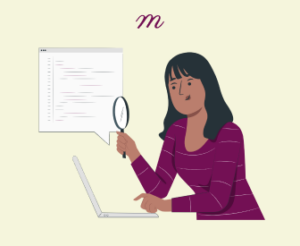As a mental health practitioner, we understand that providing the best possible care for your clients is your top priority. We also recognize that to achieve this, it's essential to continuously improve your skills and stay up-to-date with the latest best practices. Don't settle for mediocrity – seek ongoing supervision to take your skills to the next level and enhance client care. With determination, you can overcome any obstacles that come your way and achieve excellence. Regular check-ins with a dedicated supervisor and a desire to learn and improve will help you unlock your full potential. Check out our templates and examples below to make your supervision meetings even more effective and motivate yourself to reach new heights. The sky's the limit! Keep striving for greatness and become the best mental health practitioner you can be!
Preparing and Making the Most of Clinical Supervision Sessions
As a mental health professional, you must be well-prepared to make the most out of your supervision sessions. Take some time before each meeting to reflect on your goals and how the upcoming session can help you with your professional development. Go through your notes from previous sessions and identify any specific questions or concerns you may have. Keeping an open mind, being curious, and being receptive can help you gain tailored guidance and mentorship to gain more insights into yourself as a clinician. Additionally, we recommend:
Identifying Areas of Focus
Start by listing specific areas you want to learn more about: diagnostic skills, therapy techniques, finding a better work-life balance, or managing countertransference. Communicate your priorities to your supervisor to work together to achieve your goals. Discuss how your supervisor can best support you in meeting these objectives during your sessions. With clear goals and objectives, you can make the most of your time together and make significant strides in your practice.
Bringing Case Case Notes and Client Updates to Discuss Challenging Cases
Sharing notes, assessments, or updates on your clients is crucial. Doing so provides concrete examples for you and your supervisor to discuss. You can discuss what's working well and where you need guidance. Bring notes on tricky or complex cases you want input on, and be prepared to discuss the diagnosis, treatment approach, obstacles, and desired outcomes.
Reflecting on Your Strengths and Growth Areas
Examine your clinical strengths, weaknesses, values, biases, and triggers. Discuss how you intend to build on strengths and improve in other areas. Critical practice is challenged by supervision.
Preparing Questions
Supervision is an excellent opportunity to learn and develop new skills, so take advantage of it by coming prepared with your questions and seeking the advice and answers you need. Feel free to approach your supervisor with any work-related questions. Whether it's about theories, interventions, documentation, or anything else, they support your growth as a practitioner.
Ethical Issues
Don't hesitate to bring up any ethical concerns, dilemmas, or "gray areas" you face. Your supervisor is there to help ensure you ethically provide the best care. Discussing these challenging situations will help strengthen your ethical decision-making skills.
Self-Care
Make time to evaluate how you manage stress and avoid burnout honestly. Let your supervisor know if you're feeling overwhelmed so they can suggest strategies to maintain your well-being. Your mental health directly impacts your ability to help clients, so self-care must be a priority.
Supervision Note Templates and Examples to Streamline Your Practice
Taking notes during supervision meetings is crucial for keeping track of discussions and progress. Standardized templates can make your note-taking process more efficient and ensure you capture all vital details from each session. Creating a supervision template that suits your needs will help keep you organized and on track and maximize the benefits you receive from clinical supervision. Consistently using standardized templates for your supervision notes and agendas can help maintain clarity for you and your supervisor. Share copies of your notes with your supervisor, and come prepared to discuss key points from each meeting. Being intentional and focused during your supervision sessions will help you gain valuable insights and become a better practitioner.
Feel free to use any of the templates below or use them as inspiration for creating your own!
Clinical Supervision Notes Template
A clinical supervision note template can help you structure your supervision sessions for maximum productivity. You can create an "at a glance" summary you and your supervisor can reference by documenting critical details about clients, progress, challenges, and next steps. A consistent format from session to session makes identifying trends and comparing notes easier.
When creating a clinical supervision template, it is common to include the following sections:
Client information:
Include basic details like name, age, diagnosis, or treatment history.
Progress summary:
Note any improvements or setbacks since the last session. Discuss changes in symptoms, functioning, and attitudes.
Treatment plan:
Review the current goals and interventions. Discuss what is working well and what needs adjusting.
Questions and concerns:
List any questions about specific clients, diagnoses, or treatment approaches. This helps ensure essential topics are noticed.
Next steps:
Summarize action items and recommendations from the supervisor. Assign responsibilities and deadlines to keep things moving forward.
Follow-up notes:
Document any assigned readings, referrals, or other follow-up tasks. Having this written down helps ensure you follow through.
Example of a Clinical Supervision Note
Client Information:
J.D. is a 28-year-old female with a history of depression.
Progress Summary:
Jane reports some improvement in her depressive symptoms since the last meeting. She says she uses coping skills learned in therapy and feels less hopeless. However, she continues to struggle with low motivation and energy.
Treatment Plan:
We will continue with cognitive behavioral therapy, focusing on challenging negative thoughts and behavioral activation. I am also referring Jane to a psychiatrist to discuss medication as an adjunct to therapy.
Questions:
Should I do more to help Jane increase her activity level? Any suggestions would be appreciated.
Next Steps:
Supervisor recommended focusing on "graded task assignments" to help Jane initially engage in small, manageable activities. We will try this approach for two weeks and revisit it.
Follow Up Notes:
To assist Jane, I will look for workbooks or resources on graded task assignments.
Social Work/Counseling Supervision Template
For social workers and counselors, supervision notes might include:
Date and time of meeting
Your supervisor's and your names
Discussion topics (case reviews, professional development, ethics, etc.)
Supervisee questions or concerns
Supervisor recommendations, feedback, or guidance
Goals, objectives, or action items for the supervisee to focus on before the next meeting
The next scheduled meeting date
Example of a Social Work Supervision Note
Date and time of meeting: January 5, 2023, from 2:00 pm – 3:00 pm
Supervisee and supervisor names: Jane V (MSW) and Susan P (LCSW)
Discussion topics: Case review of client with depression and anxiety, professional development goals
Supervisee questions or concerns: How to improve note-taking and documentation
Supervisor recommendations, feedback, or guidance: Review sample progress notes and discuss critical information to include
Goals, objectives, or action items for supervisee: Practice writing progress notes for two client cases before the next meeting
Next scheduled meeting date: January 19, 2023 at 2:00 pm
BCBA Supervision Notes Template
When writing a supervision note for a board-certified behavior analyst (BCBA), it is typical to include the following sections:
Date of Meeting:
Supervisee Name:
Supervisor Name:
Cases Discussed:
Progress Updates:
Provide a brief update on each of your clients. Mention any progress they have made or difficulties they are facing.
Discussion Points:
Note any specific topics or issues you discussed during the supervision session. This could include:Treatment plansData collection methodsChoice of interventionsClinician difficulties
Feedback/Suggestions from Supervisor:
Summarize any feedback or suggestions your supervisor provided during the meeting. These may relate to:Improving data collection methodsAdjusting treatment plansImplementing different interventionsAddressing clinician difficulties
Action Items:
List any next steps or action items agreed upon during the meeting. This could include:Adjusting treatment plansChanging data collection methodsImplementing new interventionsFollowing up on clinician difficulties
Questions for the Next Supervision Session:
Note any questions or topics you want to discuss at your next supervision meeting.
Example of a BCBA Supervision Note
Date of Meeting: October 17, 2023
Supervisee Name: Loren P
Supervisor Name: Michael R
Cases Discussed: J.S.
Progress Updates:
J.S. has been making good progress towards her first goal. Her on-task behavior during independent work has averaged 75% over the past two weeks. I have been consistently implementing the token economy system we discussed.
Discussion Points:
Increase on-task behavior during independent work time from 60% to 80%
Improve transitioning between activities from five minutes to under two minutes
Areas for improvement:
J.S. is still struggling with transitions between activities. We need to find a more effective visual schedule or timer to help her transition more smoothly and quickly.
Questions for supervisor:
Do you recommend using a sand timer or countdown app as a visual timer for transitions?
What other strategies have you found effective for smooth classroom transitions?
Next steps:
I will try a visual timer and discuss other transition strategies with you at our next supervision meeting. I will continue to collect data on J.S.'s on-task and transition behavior to assess progress.
Psychology Supervision Notes Template
Session Date:
Client Initials:
Treatment Goals Discussed:
Client Progress Towards Goals:
Areas for Improvement:
Feedback/Suggestions from Supervisor:
Action Items:
Questions for Next Session:
Example of a Psychology Supervision Note
Session Date:
October 10, 2022
Client Initials:
H.C.
Treatment Goals Discussed:
Increase positive social interactions with peers from three to five per day.
Enhance the capacity to recognize and express emotions appropriately.
Client Progress Toward Goal:
H.C. has identified feelings in himself and others this week. He was able to name three positive social interactions he had with peers.
Areas for Improvement:
H.C. still struggles to communicate his emotions adaptively. He tends to withdraw or become aggressive instead of asserting himself appropriately.
Feedback from Supervisor:
My supervisor suggested role-playing scenarios to practice identifying and communicating emotions healthily. She also recommended identifying coping strategies to use when feeling overwhelmed.
Action Items:
Role-play emotional communication with H.C. at our next session
Develop a list of coping strategies for H.C. to use when upset
Continue monitoring H.C.'s social interactions and emotional awareness
Questions for the Next Supervision Meeting:
How can I encourage H.C. to practice his coping strategies between sessions?
What strategies do you recommend for improving peer relationships?
Group Supervision Notes Template
Date of Group Supervision:
Supervisees Present:
Supervisor:
Overview of Cases Discussed:
Provide a summary of the cases discussed during group supervision. Focus on critical details that help contextualize the cases and issues brought up.
Themes and Concepts Explored:
Note any common themes or concepts that emerged across the cases discussed. This could include themes like coping mechanisms, diagnoses, treatment approaches, cultural factors, etc.
Feedback and Suggestions from the Group:
Summarize the vital feedback and suggestions offered by the supervisor and other supervisees during group discussions of cases.
Key Takeaways and Action Items:
Outline the most important learnings from the group supervision session. What insights did you gain? What action items or adjustments to your approach do you plan to implement?
Questions for Next Session:
List any follow-up questions you have based on the cases discussed and feedback received during this group supervision session.
Example of Group Supervision Notes
Date of Group Supervision: November 9, 2023
Supervisees Present: Sarah M, Louis R, Priya G, and Nathan D.
Supervisor: Dr. Williams
Overview of Cases Discussed:
Louis discussed a new client struggling with social anxiety. Sarah shared a case involving a teenager with depression. Anika presented a client with PTSD from a traumatic accident. I consulted with a client with body dysmorphic disorder.
Themes and Concepts Explored:
Some treatment approaches discussed include cognitive distortions, coping skills training, exposure therapy, and mindfulness.
Feedback and Suggestions from the Group:
The group offered helpful suggestions regarding specific cognitive restructuring worksheets, coping skills to recommend, and ways to make exposure therapy more effective.
Key Takeaways and Action Items:
I gained helpful ideas to apply with my client around motivational interviewing and strengthening the therapeutic alliance. In our next session, I plan to try some new mindfulness exercises and cognitive restructuring worksheets.
Clinical Supervision Agenda and Plan Templates
Preparing an agenda before each meeting is advisable to keep focused and lead the discussion. Creating a supervision plan with benchmarks and goals is indispensable at the beginning of your work with your supervisor. This plan will structure your sessions and help you maximize your limited time with your supervisor. You should revisit and revise the plan periodically to stay on track and ensure that you are making progress toward your objectives.
Here are the key components to include in a clinical supervision agenda template:
Client Updates:
List the clients you plan to discuss, including any critical updates or changes since your last session.
Case Questions:
Note any specific questions about a client's treatment plan, progress, obstacles, clinical issues, etc. Coming up with straightforward questions will maximize your supervisor's input.
Goals:
List any goals you have set with clients and want feedback or guidance on from your supervisor.
Challenging Situations:
Outline any challenging client interactions, resistance to treatment, or complex diagnoses you want to problem-solve with your supervisor.
New Referrals:
If you have any new client referrals, provide essential details to discuss with your supervisor before intake.
Resources:
List any additional resources, assessments, or interventions you want your supervisor to recommend.
Next Steps
Leave space to record the action plan, tasks, goals, or next steps assigned during the session.
Schedule Follow-Up
Before leaving the current session, note the date and time for your next supervision meeting.
Example of Clinical Supervision Agenda and Plan Notes
Client Updates:
P.D. – New diagnosis of PTSD. Trouble engaging in exposure therapy.
R.S. – Making good progress on anxiety management strategies.
Case Questions:
How do you build rapport and trust with John to improve exposure therapy?
When should I progress Jane to the next level of coping skills training?
Goals:
P.D.: Agree on exposure hierarchy by the next session.
R.S.: Improve coping with ahead thoughts in two challenging situations.
Challenging Situations:
Terra (supervisee) has trouble convincing R.S. to set boundaries with her parents. Do you want suggestions on a motivational interviewing approach?
New Referrals:
Teen client with depression and self-harm. Want advice on safety precautions and interventions?
Resources:
Recommendations for workbooks or apps to support coping skills practice.
Next Steps:
This will be determined during the supervision session.
Follow-Up Meeting:
October 15 at 2 pm
Evaluating and Improving Your Supervision Experience
When you meet with your supervisor, taking notes and reviewing them afterward is always helpful to ensure you get all the essential points. It's also important to be transparent about your strengths and weaknesses, request your supervisor to observe your sessions, and offer feedback on areas you would like to improve, including motivational interviewing or termination techniques. One of the best ways to identify areas that require improvement is by reviewing recordings of your sessions together.
By keeping the channels of communication open and being receptive to constructive criticism, you can create a positive supervision experience that benefits you and your clients. It's vital to regularly evaluate what is working and what areas need improvement so you can make the necessary adjustments and maximize the value of each session.
By taking the time to evaluate your supervision experience and asking yourself questions like the following, you can continuously improve and reap the many rewards that come with good supervision:
Are my needs and goals being met? Think about why you sought supervision in the first place. Are you accomplishing what you set out to do? If not, speak up and discuss aligning sessions with your needs better.
Am I actively participating? The more you put in, the more you will get out of supervision. Come prepared with cases or issues you want input on, questions, or areas you want to improve. Engage fully in discussions and take notes on feedback and suggestions.
Is the relationship working? Do you feel comfortable opening up to your supervisor? If not, the supervision will not be as adequate as possible. Discuss any issues with your supervisor first, but don't hesitate to request a change if needed.
Are we covering all necessary areas? Effective supervision should touch on various areas, including clinical skills, professional development, ethical issues, and self-care. Review the agenda and plan for each session to ensure all key areas are addressed.
Am I implementing suggestions? The purpose of supervision is not just to get feedback but to apply what you learn to your practice. Come prepared to discuss how you implemented recommendations from the previous session and any results or obstacles. Ask for guidance on how to improve implementation for maximum benefit.
What should I include in my supervision notes template?
Along with the key points from your supervision session, your supervision notes template should include:
Details of cases discussed and issues raised
Feedback, insights, and recommendations from your supervisor
Action items and follow-up needed
Goals for the next supervision meeting
Notes on how you can improve your practice based on the discussion
A structured template will help ensure you capture all relevant information from each supervision session.
Conclusion
As mental health professionals, we have an invaluable tool – supervision. It's our chance to grow and develop, to face challenges head-on, and to approach each session with an open and willing attitude. It's about ticking a box and learning and improving daily. Take notes, ask questions, and implement the guidance you receive. Your supervisor can offer support and wisdom to enrich your practice in ways you never imagined. Keep moving forward, always learning and striving to be your best practitioner – because you owe it to yourself and your clients. Remember, supervision is the key. Embrace it, and let it inspire you to reach new heights in your profession.
To further enrich your practice, consider signing up for Mentalyc to revolutionize your training and transform your supervision sessions into powerful tools for growth and development. Imagine creating and storing notes, resources, and tools for your clients and cases – all in one place. With its user-friendly interface and powerful features, you can confidently enter each supervision meeting, knowing you have your best work organized and accessible. Quickly reference past notes, feedback, and suggestions from your supervisor to take your practice to new heights. Sign up for a free 30-day trial of Mentalyc today and unleash your full potential. Don't just settle for good – strive for greatness.
Resources:
Ashford, M. (2023, June 12). How to Prepare as A Therapist Beyond the Classroom. The Original Visitor Management System. https://thereceptionist.com/blog/clinical-supervision-how-to-prepare-for-practice-beyond-the-classroom/
Bradley, W. J., & Becker, K. D. (2021). Clinical Supervision of Mental Health Services: a Systematic Review of Supervision Characteristics and Practices Associated with Formative and Restorative Outcomes. The Clinical Supervisor, 40(1), 88–111. https://doi.org/10.1080/07325223.2021.1904312
Clinical Supervision Preparation Tools – New Mexico Behavioral Health Providers Association. (n.d.). Nmbhpa.org. Retrieved from https://www.nmbhpa.org/clinical-supervision-implementation-guide/clinical-supervision-preparation-tools/
DeAngelis, T. (2014, September). Fostering Successful Clinical Supervision. American Psychological Association. https://www.apa.org/monitor/2014/09/clinical-supervision
Emily Woods, L. (n.d.). 7 Essential Benefits of Supervision for Mental Health Professionals Purehealthcenter.com. Retrieved from https://www.purehealthcenter.com/post/7-essential-benefits-of-supervision-for-mental-health-professionals








